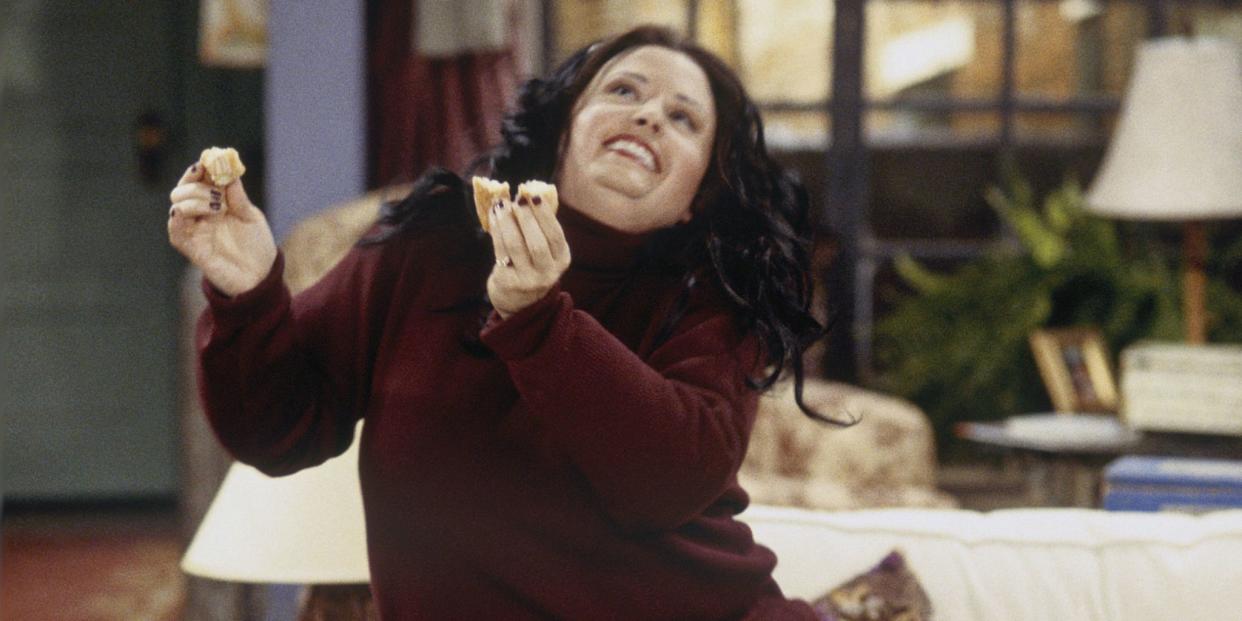This plus size blogger makes a powerful argument about "fat" TV characters

Plus size blogger and self-love advocate Rosey Blair (who uses the handle @roseybeeme) has posted a series of videos examining all the film and TV show characters she "believed to be fat when growing up" – and makes some brilliant observations. Namely, on how damaging plot lines around weight can be and how Hollywood's beauty standards are seriously messed up.
Captioning one of her uploads on Instagram, Rosey said, "So on TikTok I'm doing this little series where I talk about how fat people were/are portrayed in film and television. I started out by talking about “fat” characters that really weren’t that fat... I remember those characters SO much from childhood because they made me feel BAD about myself.
"Soon I will be moving on to talking about portrayals of fat people who are authentically fat (both positive and negative). I am having SO much fun with this series and I would love to have your input."
As part of her series, Rosey questions the likes of not only Bridget Jones' Diary (whose weight was recently the subject of another viral post), but Natalie in Love Actually, who is referred to as "the chubby girl" and "plumpy", and of course, 'Fat Monica' in Friends. On the latter, she references an interview where Courtney Cox said she "loved playing Fat Monica as she felt free to dance", saying "I didn't know thin people couldn't do [that]".
A post shared by Rosey Blair (@roseybeeme) on Jun 17, 2020 at 8:20pm PDT
Speaking about Martine McCutcheon's character Natalie, Rosey also excellently references that Hugh Grant's character asks in the film "Would we call her chubby?" and questions that sentiment herself.
Rosey's analysis of these characters really brings home the argument that the stereotypical beauty ideals, that most of us have grown up consuming, are unhealthy. There's obviously a lot more nuance to that debate too – one aspect of it being that many of these actresses cast as "fat" characters are in actuality a smaller size, yet are referred to as being overweight (which is a damaging message for impressionable viewers to take on board).
But there's also the hugely important and valid point that our society is far too fixated on weight in the first place. How you look does not determine your worth – so why should it be one of the key defining features of so many female characters? The messaging is confusing and hurtful.
Well done to Rosey for shining a spotlight on (both the positive and negative) portrayals of bigger bodies in the media.
Like this article? Sign up to our newsletter to get more articles like this delivered straight to your inbox.
You Might Also Like


